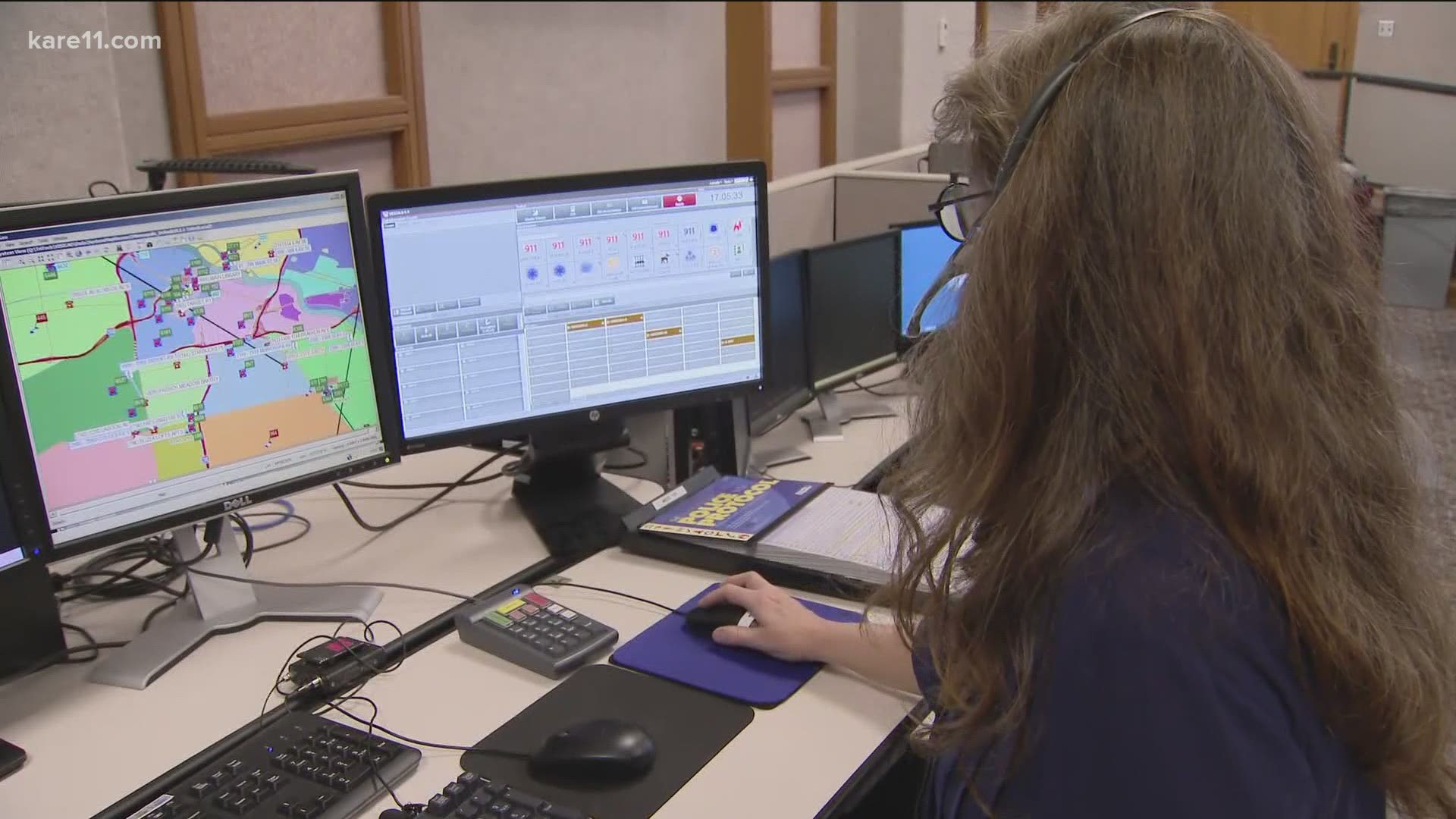MINNEAPOLIS — After months of arguments over which police reforms might make it into a new Minnesota Public Safety Bill, a single sentence in the compromise legislation quietly reforms the way 911 dispatchers do their jobs.
Mental health advocates say the change marks an overdue step forward, and it was made possible by the loved ones of Travis Jordan.
"On November 9th, 2018, the city of Minneapolis failed us," said Taren Vang, who has spent the past two years fighting for Travis' Law, in honor of her late boyfriend, who was fatally shot by Minneapolis police after Vang says she called 911 after Jordan threatened suicide.
"I believe that with all my heart if community protection was built around protecting citizens, mental health professionals would have responded to the call that I made to get help for TJ," Vang said, during a news conference in Minneapolis last fall.
Sue Abderholden, executive director of the National Alliance on Mental Illness (NAMI) Minnesota, says there are already 34 mobile crisis teams in place statewide, and each county has a mental health crisis hotline.
"The problem is, most people have no idea what that number is," Abderholden said. "And when you're in the midst of a crisis, you're not going to search for it on the internet. Everyone knows 911."
The new public safety bill will change that because it "requires 911 operators to refer calls involving mental health crises to mental health crisis teams where available."
"If you have a fire, if you have someone breaking into your house, if you have a heart attack, you call 911, and the appropriate response gets sent out," Abderholden said. "We want to make sure if you're having a mental health crisis that, again, the appropriate response is sent out."
She says you don't have to look far to see what happens when 911 operators do direct people to mental health crisis teams.
"St Paul is already doing that," Abderholden said. "They've been able to show that they have diverted way over a thousand calls to the mobile team instead of having police come out. In some situations you might have both go out to make sure that the scene is safe - that there is no guns or something like that - but other than that, many times, the crisis team has been able to respond effectively."
She says Minneapolis is now looking at adding a crisis team member inside its call center to help streamline that process, but she says the bill still has limitations, especially when you consider the last two words of Travis' Law: "where available."
Kent Erdahl: "How available is this?"
Abderholden: "It's going to depend. Middle of the night, it's going to be much harder. You're going to get someone on the phone. You're not going to necessarily going to get someone coming out (in person). In greater Minnesota we have one crisis team that covers many northwest counties. Those are long distances so that's going to be much harder. If people think that the crisis team can respond as quickly as fire, police or EMTs, they can't. They're just not funded at that."
The Statewide Crisis Team Budget in 2021 was $13M, and though it jumps to $18M next year, that's far less than city police budgets. In 2020, Minneapolis and St Paul Police budgets each topped $100M.
But following an unprecedented year of stress, Abderholden says anything to extend the reach of mental health professionals is a step in the right direction.
"We have young people with a much higher percentage experiencing suicidal ideation right now," she said. "We have adults and kids really struggling with depression and anxiety, so I think - now more than ever - we need to make sure people know what the crisis resources are."
Click here for a list of mental health crisis hotlines and other resources in your area.

